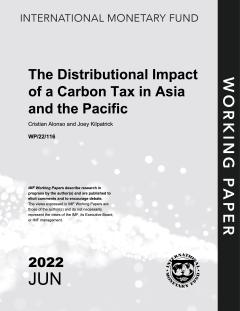
While a carbon tax is widely acknowledged as an efficient policy to mitigate climate change, adoption has lagged. Part of the challenge resides in the distributional implications of a carbon tax and a belief that it tends to be regressive. Even when not regressive, poor households could be hurt by a carbon tax, particularly in countries that rely heavily on carbon-intensive energy sources.
Using household surveys, this research studies how a carbon tax may affect households in the Asia Pacific region, the main source of CO2 emissions. The paper documents a wide range of country-specific policies that could be implemented to compensate households, reduce inequality and build support for adoption.
